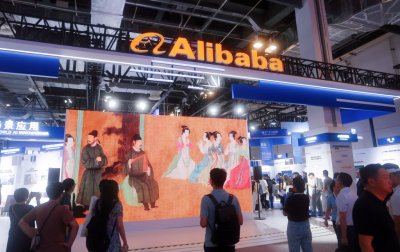Alibaba Integrates Nvidia’s Physical AI Tools to Elevate Robotics and Autonomous Technology on Its Cloud Platform
@devadigax24 Sep 2025

Alibaba has announced a strategic integration of Nvidia’s Physical AI development tools into its AI cloud platform, marking a significant step in advancing robotics, autonomous vehicles, and connected smart environments within its ecosystem. This collaboration aims to enhance Alibaba’s AI capabilities by providing developers with sophisticated tools for 3D simulation, synthetic data generation, and reinforcement learning, which are critical for accelerating the development and deployment of AI-powered physical systems.
Nvidia’s Physical AI stack enables the creation of high-fidelity digital twins — precise 3D replicas of real-world environments such as factories, warehouses, or urban roads. These digital models allow AI to be trained in safe, cost-effective virtual settings before deploying to real-world applications. For robotics and self-driving cars, this approach significantly reduces the risks and expenses related to real-world testing by using synthetic data to simulate millions of scenarios and refine AI control policies through reinforcement learning techniques.
This partnership not only integrates Nvidia’s advanced embodied AI toolchain into Alibaba Cloud’s machine learning platform but also reflects Alibaba’s aggressive commitment to AI expansion. The company recently announced plans to increase its AI investment beyond its previous $50 billion budget, aiming to support a global growth strategy for AI infrastructure that includes data centers across multiple continents, such as new facilities planned in Brazil, France, and the Netherlands.
For developers using Alibaba Cloud, the embedding of Nvidia’s Physical AI capabilities translates into direct access to powerful simulation and training environments. These tools allow faster iteration for AI models used in autonomous navigation, robotics control, and smart facility management. Moreover, synthetic data generation addresses the challenge of scarce labeled real-world data, which has traditionally constrained AI training in physical domains.
This alliance also strengthens Alibaba’s position in the competitive AI landscape, especially in China, where it has been advancing rapidly. Last year’s collaboration efforts laid groundwork by integrating Vision-language models into Nvidia’s Drive platform, used by major Chinese automakers such as Li Auto and Great Wall Motor. This latest move amplifies Alibaba’s ability to support a broad spectrum of AI-driven physical systems through cloud infrastructure, increasingly relevant as robotics and autonomous tech grow in industrial and commercial applications.
Nvidia’s focus on Physical AI complements its ongoing expansion, following investments in other major AI-related partnerships like its $5 billion stake in Intel and a multibillion-dollar investment with OpenAI. The Physical AI platform’s ability to simulate physical environments down to detailed sensor and physics fidelity is emerging as a critical enabler for safe and efficient AI deployment in real-world robotics, autonomous vehicles, and Internet of Things (IoT) connected spaces.
In summary, Alibaba’s integration of Nvidia’s Physical AI toolkit brings robotics-grade simulation, training, and deployment capabilities directly to its cloud customers, accelerating AI innovation in autonomous driving, robotics, and smart connected environments. Backed by substantial funding and a growing global data center footprint, Alibaba is poised to become a leading provider of AI infrastructure tailored for embodied AI applications, reflecting the increasing convergence of cloud computing and physical AI development worldwide.
 AI Tool Buzz
AI Tool Buzz